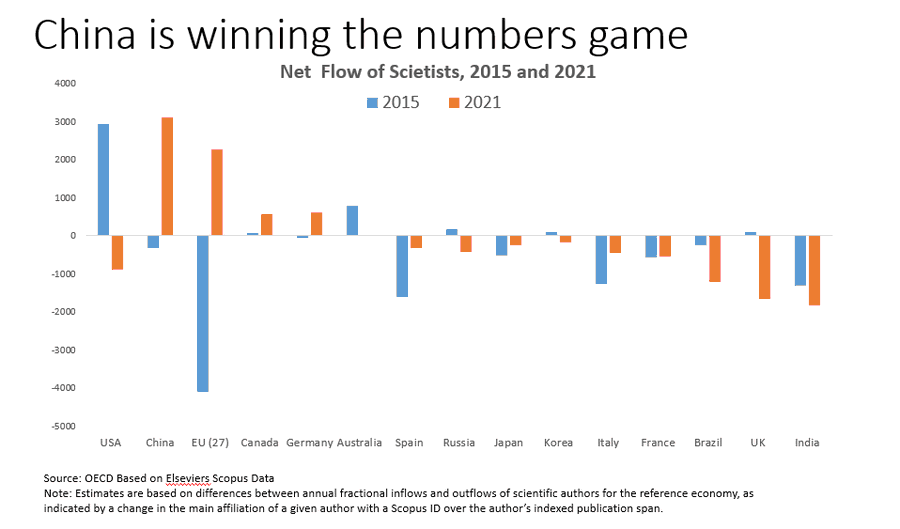The Great American Brain Drain: US Left in the Dust as Top Scientists Flock to China
This trend began before the COVID-19 pandemic and appears to have been influenced by the Trump administration's controversial "China Initiative."
Authored by: TN Science Desk
Updated May 1, 2023 | 03:39 PM IST
The Great American Brain Drain: US Left in the Dust as Top Scientists Flock to China
In a stunning turn of events, new data from the Organisation for Economic Co‐operation and Development (
OECD) reveals that the
United States is rapidly losing ground to
China in the race to attract the world's brightest scientific minds. China's successful strategy to entice researchers to work at its affiliated universities is paying off, according to the
CATO Institute.
America's Loss of Talent: A Troubling Trend
Back in 2017, the United States was able to attract 4,292
scientists, while China gained a mere 116. Fast forward to 2021, and the tables have turned: the US lost published
research scientists, whereas China welcomed a whopping 2,408 scientific authors. The OECD suggests that more Chinese scientists returning to their home country are responsible for this dramatic shift.
The Controversial "China Initiative" and its Impact on Researchers
It's essential to note that this trend began before the COVID-19 pandemic and appears to have been influenced by the Trump administration's controversial "China Initiative." Launched in November 2018, this Department of Justice campaign was intended to address intellectual property theft and espionage. However, it resulted in the intimidation of institutions employing scientists of Chinese heritage and numerous failed prosecutions of scientists collaborating with Chinese institutions.
U.S. Attorney Andrew E. Lelling has admitted that the initiative he helped spearhead "created a climate of fear among researchers." This fear among Chinese scientists could lead to the United States losing out on their valuable discoveries and contributions.
Despite the Justice Department's claims of discontinuing the "China Initiative," there is skepticism about whether Chinese scientists will be free from unwarranted scrutiny in the future. The U.S. National Institutes of Health continues to boast about causing the dismissal of over 100 scientists and shutting down research by over 150 scientists, with over 80 percent identifying as 'Asian.' As a result, universities and U.S. companies are increasingly concerned about missing out on the talents of
Chinese researchers.
This trend began before the COVID-19 pandemic and appears to have been influenced by the Trump administration's controversial "China Initiative." , Technology & Science News, Times Now

www.timesnownews.com












